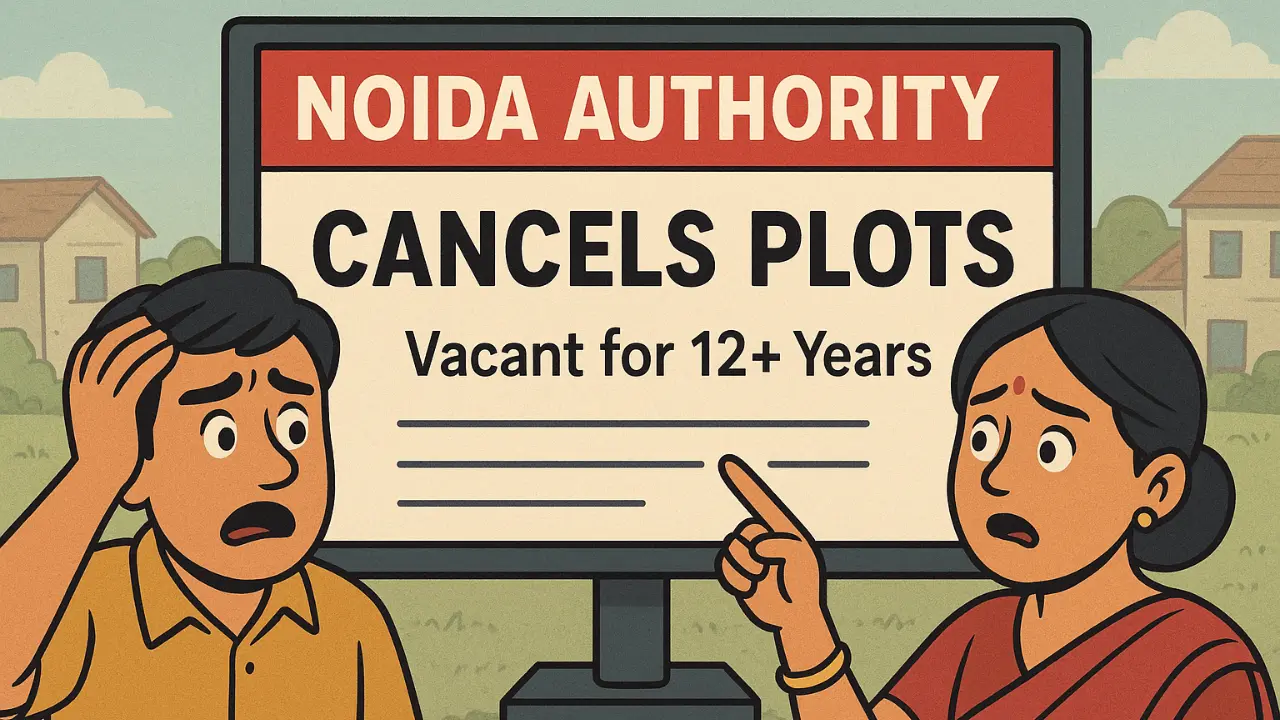Noida Authority Cancels Allotments of Residential Plots Vacant for Over 12 Years

The Noida Authority cancels allotments of plots that have remained vacant for over 12 years, marking a significant step in curbing speculative landholding in the city. This decision, approved at the Authority’s 219th board meeting, aims to ensure that land designated for housing is effectively utilized and that neighborhoods remain well-planned and developed.
Allottees who have already started construction will receive a six-month grace period to complete their projects and obtain the necessary completion certificates. The move also introduces the Unified Regulations-2025, standardizing allotment rules and approvals across Noida, Greater Noida, and the Yamuna Expressway Authority.
Noida, a rapidly developing city in Uttar Pradesh, has witnessed a surge in land allotments over the years. However, a substantial number of these plots have remained undeveloped, leading to concerns about urban sprawl and inefficient land utilization. The Authority’s decision aims to curb speculative landholding and encourage timely development, aligning with broader urban planning objectives.
Key Provisions of the New Policy
- Plots that have remained vacant for more than 12 years without any construction will have their allotments revoked. This measure targets landowners who have failed to initiate development within the stipulated timeframe.
- Allottees currently in the process of construction will be granted a six-month grace period to complete their projects and obtain the necessary completion certificates. This provision ensures that genuine efforts to develop the plots are not penalized.
- To streamline the development process, the Noida Authority has adopted the Unified Regulations-2025. This framework standardizes allotment rules, approvals, and payment schedules across Noida, Greater Noida, and the Yamuna Expressway Authority. It also introduces new plot allotments for educational institutions, including colleges, senior secondary schools, and nursing schools, under a unified framework.
Also Read
Landowners who have not commenced construction within the 12-year period face the risk of losing their allotments. Those with ongoing projects must adhere to the six-month deadline to avoid penalties.
The policy underscores the importance of timely project completion. Developers must ensure that their projects comply with the new regulations to maintain their allotments and avoid legal repercussions.
For the residents of Noida, this policy promises enhanced urban aesthetics and infrastructure. The removal of long-vacant plots is expected to lead to better-planned neighborhoods and improved public amenities.
Also Read
This initiative is part of a larger effort to revitalize urban spaces and promote sustainable development. By addressing the issue of vacant plots, the Noida Authority aims to create a more dynamic and livable city. The adoption of the Unified Regulations-2025 further reflects a commitment to modernizing urban governance and facilitating smoother development processes.
Wrap Up
The Noida Authority’s decision to cancel the allotment of long-vacant residential plots is a bold and necessary step towards responsible urban development. By enforcing stricter regulations and encouraging timely construction, the Authority is paving the way for a more organized and prosperous Noida. Stakeholders must adapt to these changes to contribute to the city’s growth and development.
For more detailed information on the new regulations and their implications, stakeholders are advised to consult the official Noida Authority website or contact the Authority directly.





